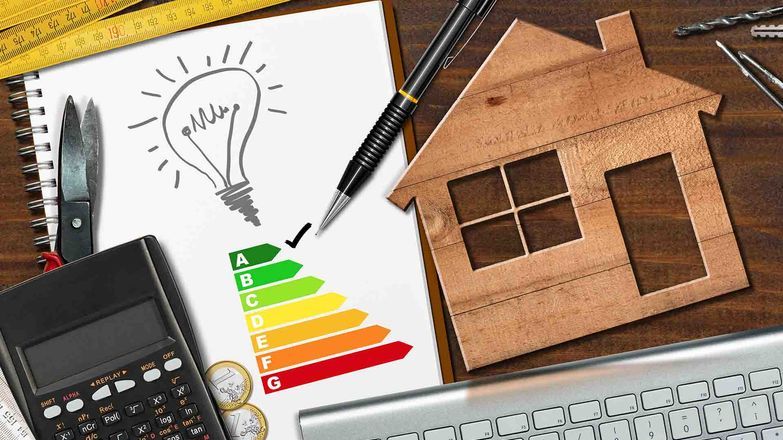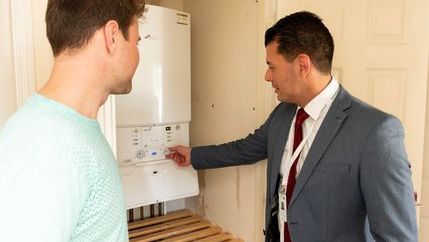
It would take 43 years for all the houses for sale on Rightmove to reach an EPC rating of C, and 25 years for the flats, research carried out by the platform has revealed. The picture is not much better for rental properties, with predictions of 31 years for houses and 16 years for flats.
According to the UK Green Building Council, 80% of buildings that will be occupied in 2050 already exist today, meaning that retrofitting existing homes is critical. The UK Government has a target to get as many homes ‘as practicable’ up to an EPC rating of C by 2035.
Where are we now?
Rightmove’s latest analysis of available houses for sale on their site shows that over the past four years, there has only been a 6% shift in the proportion of houses that have moved up to at least a C rating. There has also been a 6% shift in flats for sale, although flats are more energy efficient than houses, likely due to fewer exposed walls.
The rental market has fared better in its progress, as legislation means it is illegal to rent out a property lower than an E rating unless there is a valid exception. There has been an 8% change since 2019 in the proportion of houses for rent that have moved to at least a C, and a 9% change in flats for rent.
Green shoots in consumer behaviour
The energy efficiency of a home is not yet a major factor for most people when they’re choosing where to live, but some signs are beginning to change. In Propertymark’s August 2023 report Energy Efficiency in the UK: Where to go from here?, 73% of sales agents told us that buyers ‘sometimes’ show an interest in a property’s EPC rating, with 15% reporting that in their experience they ‘never’ do.
This represents an improvement from our previous survey in 2018 when 35% of respondents said buyers never took an interest in the EPC.
For prospective renters, the picture is only slightly different, with 86% of agents saying customers sometimes show an interest and 12% saying they never do.
Landlords at the coalface of change
Landlords are the group most affected by developments in energy efficiency changes in the short term, with both the UK and Scottish Governments planning to raise the minimum EPC rating to C for new tenancies from around 2025 (although official confirmation is yet to come).
The lack of clarity on future requirements, and the potential for new or cheaper solutions to become available, leaves landlords understandably hesitant to make big financial investments in upgrading their properties.
The risk of landlords, especially those with smaller portfolios or older properties, selling up due to the cost of meeting the proposed new standards was a common thread in comments from Propertymark agents in our research. Other unintended consequences causing concern include increasing rents, fewer available properties and a drop in overall property standards as money is diverted to mandated energy upgrades.
Owners need more motivation to invest
The primary reason to look for green credentials is immediate cost savings on energy bills, particularly with the continued cost-of-living pressures, with 78% of owners stating that this was the factor that most motivated them.
However, 43% say they have not and do not plan to improve the energy efficiency of their home, possibly because they do not expect to be in the property long enough to recoup the costs. This suggests monetary incentives will be the best way to convince people to go ahead with upgrades shortly.
Evidence that green improvements raise values?
Analysis of 300,000 properties that have sold twice in the last 15 years and have had a new EPC certificate issued shows evidence of what Rightmove calls a ‘green premium’ on top of local house price growth over the same time.
Their report concludes that a property moving from an F to a C rating could increase in value by an average of an additional 15%, or almost £56,000, when looking at the current national average asking price.
However, when Propertymark spoke to agents who set and negotiate prices they were unconvinced of the EPC’s influence on price — 66% of sales agents reported that energy efficiency improvements do not add more value than they cost to install.
The attributed impact of EPCs on sales and rental prices found by other research may be related to factors that researchers have been unable to measure or have taken for granted, such as the overall condition or presentability of a property.








